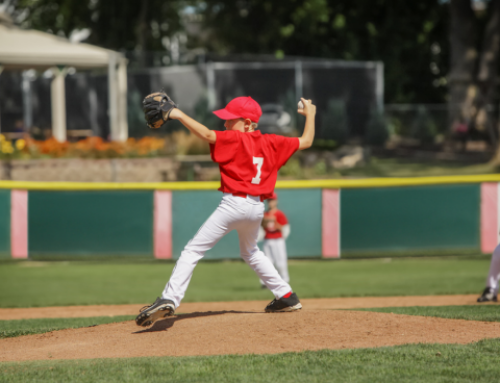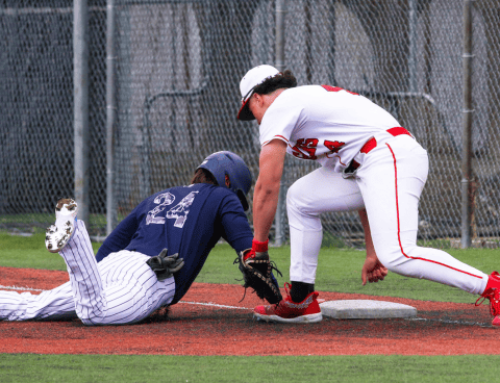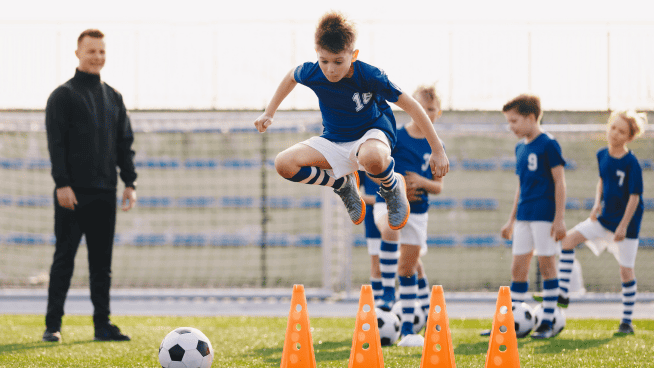Do Home Run Derbies Actually Screw Up Your Baseball Swing?
There has always been debate among those in baseball as to the effect that participating in the All-Star Game’s Home Run Derby will have on a player’s second-half season performance. Some believe that the derby negatively effects a player due to the changes in swing mechanics players use during the contest. Meanwhile, others don’t think the derby has any effect.
This debate has become a hot topic because of the struggles of Aaron Judge in the first few weeks after he won the derby. As of Aug. 4, Judge, who was the front runner for American League MVP and Rookie of the Year, is hitting just .164 since the All-Star break. So, is there evidence to support his struggles coming from participation in the Home Run Derby?
To determine if there is a decline in production, home runs per game, batting average and ops (on-base percentage + slugging percentage) were analyzed from 2000-2016. The participants of the Home Run Derby were compared to the top 8-10 (depending on season) home run hitters not in the contest. Players who played in fewer than 55 games in either the first or second half of the season were excluded. Here are the numbers:
Home runs per game
(Pre All-Star Break / Post All-Star Break Change)
Home Run Derby Participants: .24 / .20 (-.04 difference)
Didn’t Participate in Home Run Derby: .28 / .22 (-.06 difference)
Winner: HR Derby
Batting Average
(Pre All-Star Break / Post All-Star Break Change)
Home Run Derby Participants: .300 / .287 (-.013 difference)
Didn’t Participate in Home Run Derby: .289 / .280 (-.009 difference)
Winner: Non-Derby
OPS (On-Base + Slugging)
(Pre All-Star Break / Post All-Star Break Change)
Home Run Derby Participants: .958 / .901 (-.057 difference)
Didn’t Participate in Home Run Derby: .955 / .901 (-.054 difference)
Winner: Non-Derby
The first takeaway from these statistics is that almost across the board, offensive production drops in the second half of the season. There were only 5 of the 17 seasons in this study where any of the 3 statistical categories improved after the All-Star Break. This could be due to a number of different factors including fatigue, injury, more detailed scouting information available, or many others.
The second conclusion is that there is almost no statistical difference between the two groups. The Home Run Derby group had a smaller drop in home runs per game, but a slightly bigger drop in batting average and OPS than the non-derby group. However, these differences are negligible. Both batting average and OPS are about the difference of one hit over the course of the second half of the season.
There will always be outliers such as Brandon Inge, who participated in the 2009 Home Run Derby. Inge hit .268 in the first half with 22 home runs and an OPS of .876. After the break, he hit .186 with 6 home runs and an OPS of .542. However, over the course of the past 17 seasons, there is little to no difference between those who participate in the Home Run Derby and those who do not.
READ MORE:
[cf]skyword_tracking_tag[/cf]RECOMMENDED FOR YOU
MOST POPULAR
Do Home Run Derbies Actually Screw Up Your Baseball Swing?
There has always been debate among those in baseball as to the effect that participating in the All-Star Game’s Home Run Derby will have on a player’s second-half season performance. Some believe that the derby negatively effects a player due to the changes in swing mechanics players use during the contest. Meanwhile, others don’t think the derby has any effect.
This debate has become a hot topic because of the struggles of Aaron Judge in the first few weeks after he won the derby. As of Aug. 4, Judge, who was the front runner for American League MVP and Rookie of the Year, is hitting just .164 since the All-Star break. So, is there evidence to support his struggles coming from participation in the Home Run Derby?
To determine if there is a decline in production, home runs per game, batting average and ops (on-base percentage + slugging percentage) were analyzed from 2000-2016. The participants of the Home Run Derby were compared to the top 8-10 (depending on season) home run hitters not in the contest. Players who played in fewer than 55 games in either the first or second half of the season were excluded. Here are the numbers:
Home runs per game
(Pre All-Star Break / Post All-Star Break Change)
Home Run Derby Participants: .24 / .20 (-.04 difference)
Didn’t Participate in Home Run Derby: .28 / .22 (-.06 difference)
Winner: HR Derby
Batting Average
(Pre All-Star Break / Post All-Star Break Change)
Home Run Derby Participants: .300 / .287 (-.013 difference)
Didn’t Participate in Home Run Derby: .289 / .280 (-.009 difference)
Winner: Non-Derby
OPS (On-Base + Slugging)
(Pre All-Star Break / Post All-Star Break Change)
Home Run Derby Participants: .958 / .901 (-.057 difference)
Didn’t Participate in Home Run Derby: .955 / .901 (-.054 difference)
Winner: Non-Derby
The first takeaway from these statistics is that almost across the board, offensive production drops in the second half of the season. There were only 5 of the 17 seasons in this study where any of the 3 statistical categories improved after the All-Star Break. This could be due to a number of different factors including fatigue, injury, more detailed scouting information available, or many others.
The second conclusion is that there is almost no statistical difference between the two groups. The Home Run Derby group had a smaller drop in home runs per game, but a slightly bigger drop in batting average and OPS than the non-derby group. However, these differences are negligible. Both batting average and OPS are about the difference of one hit over the course of the second half of the season.
There will always be outliers such as Brandon Inge, who participated in the 2009 Home Run Derby. Inge hit .268 in the first half with 22 home runs and an OPS of .876. After the break, he hit .186 with 6 home runs and an OPS of .542. However, over the course of the past 17 seasons, there is little to no difference between those who participate in the Home Run Derby and those who do not.
READ MORE:
[cf]skyword_tracking_tag[/cf]










